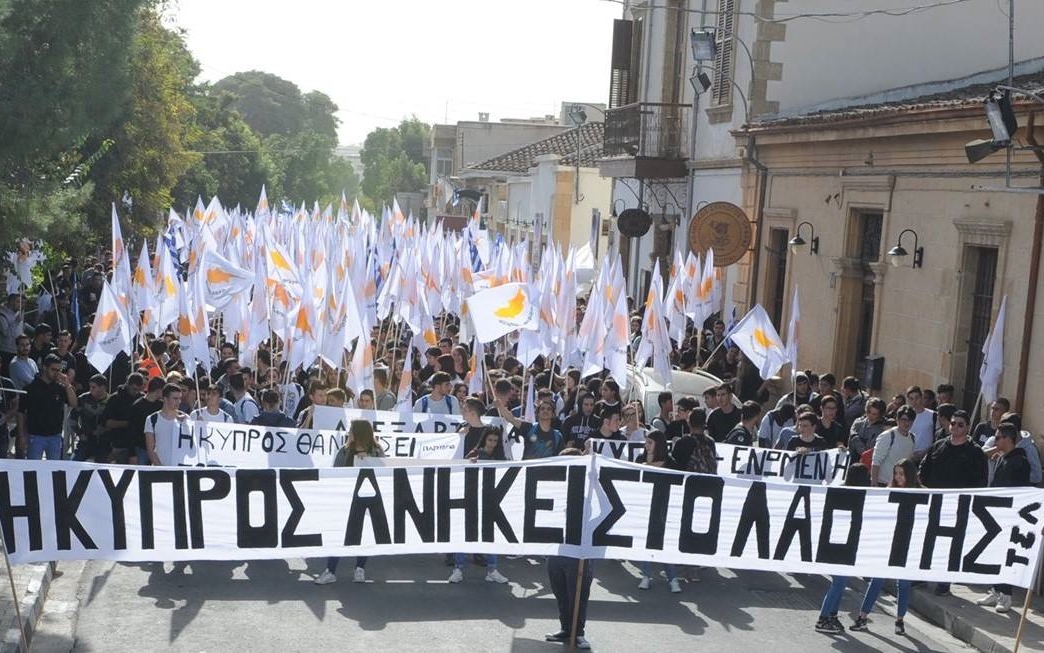
Cyprus independence: sufferings and lessons
Article by Stefanos Stefanou, AKEL Political Bureau member
Sunday, 4th October 2020, “Haravgi” newspaper
The independent bi-communal Cypriot state constitutes a historic and precious gain for the Cypriot people. Unfortunately, however, the leading elites of the Greek Cypriot and Turkish Cypriot communities, trapped in their nationalism and ethno-centrism, fought against and undermined it.
For the Greek Cypriot elite, the Cypriot state represented the cancellation of its vision for Enosis (Note: the union of Cyprus with Greece). For the Turkish Cypriot elite, this represented the cancellation of the goal of Taksim (Note: partition in Turkish). Neither of them wanted the Cypriot state, despite the fact that both elites exploited it to consolidate their own power and reap its fruits.
The undermining of the Cypriot state, which was dysfunctional anyway, led to its development being obstructed. Soon, in 1963-64, inter-communal clashes broke out, for which the leaderships of the two communities had been preparing for. The Greek Cypriot leadership formed the Akritas Organization to attack bi-communalism and promote union with Greece. On the other hand, the Turkish Cypriot leadership again utilised the TMT nationalist organisation, which was inciting hatred between the two communities and suppressing (and indeed exterminating) every progressive Turkish Cypriot voice.
With the inter-communal clashes, the leading elites and political factions that didn’t accept the Cypriot state considered that the time had come to rid themselves of it. The Turkish Cypriots withdrew from the bodies of power and institutions and, under pressure from Ankara, a large proportion of them were trapped in enclaves where the overwhelming majority lived in miserable conditions.
The Greek Cypriot elite took advantage of this development to build Enosis piece by piece. The policy and rhetoric of Enosis covered everything. The Cypriot flag disappeared and was replaced by the Greek flag. The Council of Ministers, which by then was composed only of Greek Cypriots, decided in November 1966 to adopt the music of the National Anthem of Greece as the National Anthem of Cyprus. In 1964, the decision was taken to hold a military parade not on the anniversary of Cyprus independence, but on 1st April, the anniversary of EOKA.
In schools (I remember as a very young child back then in primary school) we were taught the poem “the flag of my homeland is blue” and of course they never taught us how we arrived at independence, given that the goal of the struggle of EOKA was Enosis. As we also never learned that Cyprus is a bi-communal state that belongs equally to both Greek Cypriots and Turkish Cypriots. Cyprus was portrayed (and was mostly behaving) as a second Greek state, that was the extension (if not a province) of metropolitan Greece.
With rhetoric and policies for Enosis, with the undermining of the state and through terror (which reached a climax with the Greek junta and Grivas’ armed underground EOKA B organisation as the leading protagonists) we arrived at the treacherous execution of the coup d’état and the Turkish invasion in 1974. Since then, the Republic of Cyprus has been waging the struggle to secure its survival.
In the sixty-year historical course of the Republic of Cyprus as a people we have suffered a lot. In the face of the serious dangers that our country is going through and with partition knocking on our door, we must draw the lessons from our sufferings.
The first and decisive lesson that we should draw is that the Republic of Cyprus cannot continue to function as an effective shield of protection of our people, their rights and gains, if it does not rid itself of the Turkish occupation and the de facto partition. The temporary nature of the current status quo cannot guarantee a secure and safe future, neither for the Greek Cypriots nor for the Turkish Cypriots.
There is only one option before us to ensure security, peace and cooperation. It is the solution of bi-communal, bi-zonal, federation with political equality, as described by the United Nations. This is the basis of the solution that has been agreed upon by the two communities since 1977. This basis has been adopted by the UN, the EU and the entire international community. We shall discuss on this basis in all the negotiations that have been conducted. We will discuss whether the negotiations will resume from the point where they had remained at the Crans Montana conference on this very basis. This is the basis of a solution to the Cyprus problem, which is feasible and capable of ending the occupation and reuniting our country and people.
Any other idea and pursuit belongs to the realm of delusion and the unfeasible. And, Cyprus has already paid a heavy price for the actions of those who frantically chased and sought the unfeasible.




